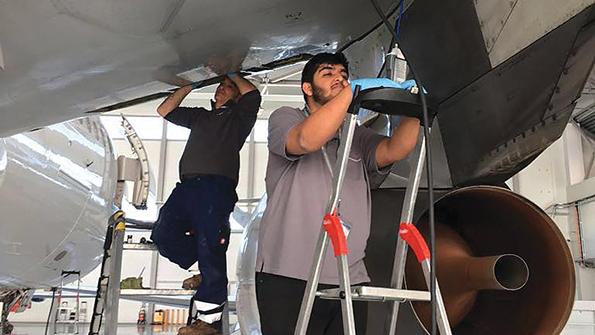
Ask the Editors: The Aviation Week Network invites our readers to submit questions to our editors and analysts. We’ll answer them, and if we can’t we’ll reach out to our wide network of experts for advice.
Kathon, a fuel biocide, was an effective treatment for, and preventative of, microbial growth in aircraft fuel tanks, but its production has been discontinued. With aircraft now being parked for extended periods of time, there seems to be increased risk of fuel system issues, especially involving fuel-driven line-replaceable units. Is there an alternative to Kathon?
Chief Editor, MRO Lee Ann Shay responds:
Yes. The two most common aviation fuel biocides are Kathon FP 1.5 and Biobor JF, which are used to kill microbiological contamination in fuel. However, several recent events showing adverse engine effects on the ground and inflight prompted a March 10 alert from Kathon producer DuPont advising users to discontinue using its product for aviation fuel applications.
The European Union Aviation Safety Agency issued a Safety Information Bulletin on March 20, and the FAA followed with a Special Airworthiness Information Bulletin on March 25 to reinforce that airlines and maintenance, repair and overhaul providers use the correct biocide dose and procedures.
Aircraft and engine maintenance manuals should list biocide alternatives to Kathon. For instance, Airbus advises that Kathon should not be used on its aircraft and recommends Biobar instead. If Kathon has been used, it recommends completely draining tanks before returning the aircraft to service, says Paul Oliver, vice president of customer services for Airbus North America.
For aircraft in hot and humid places, where bacteria grow more readily than in cooler climates, fuel should be drained or tested more frequently.
